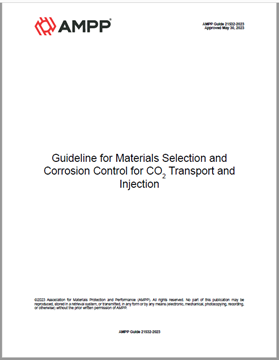Search
Products tagged with 'co2 injection'
View as
Sort by
Display
per page
AMPP Guide 21532-2023, Guideline for Materials Selection and Corrosion Control for CO2 Transport and Injection
Product Number:
AMPP Guide 21532-2023
Publication Date:
2023
$109.00
Applicability of Martensite-Based Stainless Steels for CO2 Injection Tubing
Product Number:
51324-20636-SG
Publication Date:
2024
$40.00
Corrosion Behavior of Martensite-Based Stainless Steels in Chloride Solutions Saturated with CO2 Containing Impurity Gases
Product Number:
51323-18908-SG
Publication Date:
2023
$20.00



